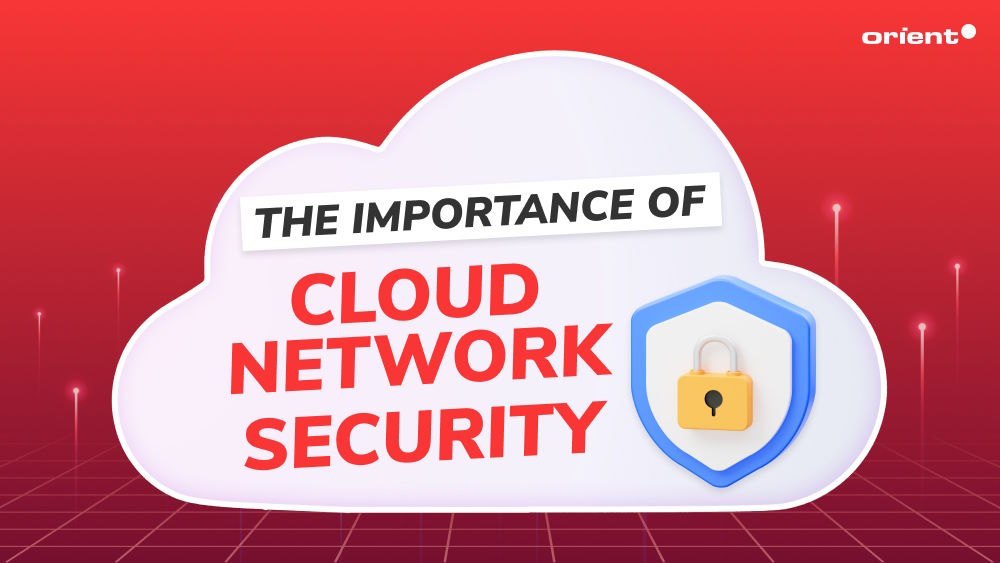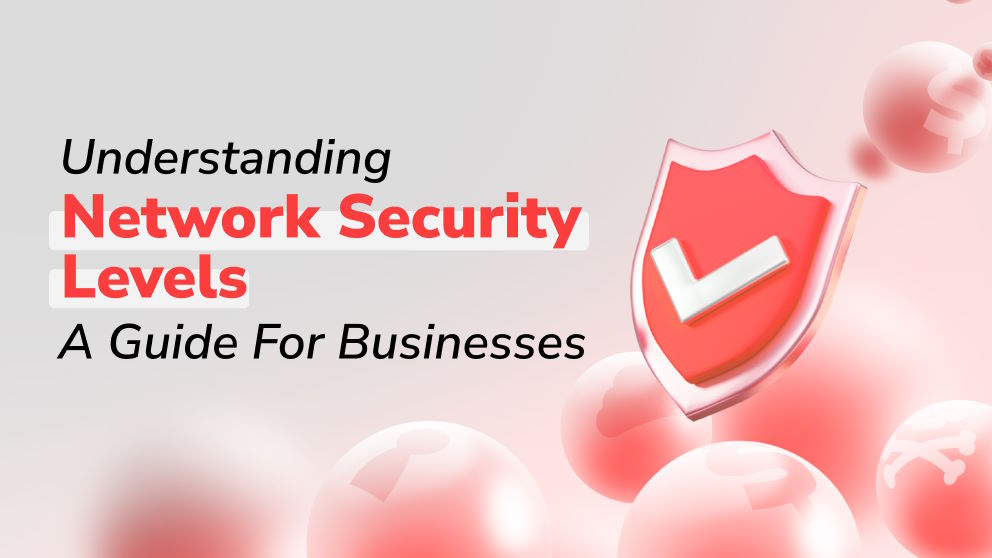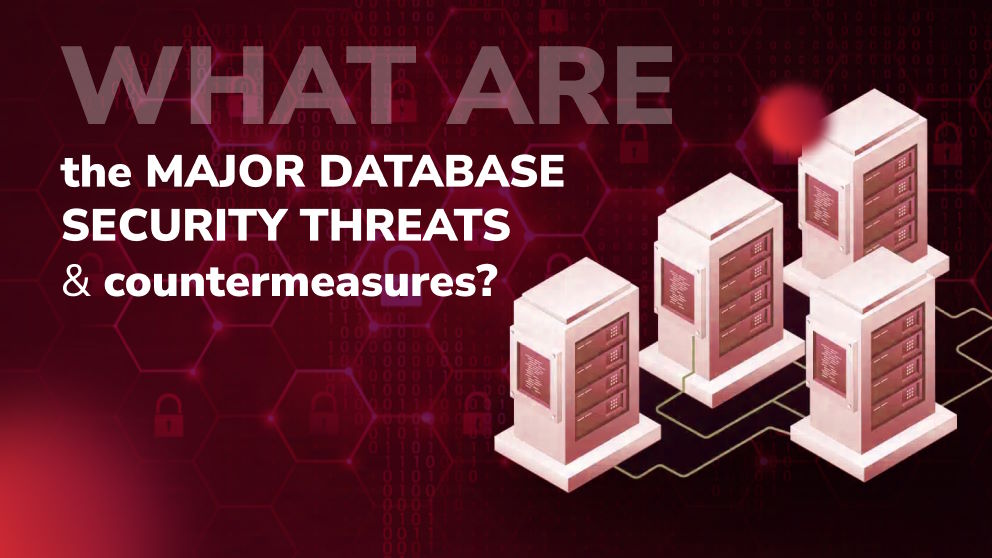
The Importance of Cloud Network Security in the Modern Business Landscape

Content Map
More chaptersBusinesses in the current digital era rely significantly on technology to store and manage their data. With the increasing adoption of cloud computing, businesses are enjoying the benefits of cost savings, scalability, and flexibility. However, with the advantages of cloud computing come the risks associated with cloud security.
Cloud network security refers to the measures put in place to protect the confidentiality, safetyness, integrity, and availability of data stored in cloud environments. It involves safeguarding cloud-based networks from cyber threats, such as unauthorized access, data theft, and denial-of-service attacks, by implementing measures such as identity and access management, encryption, firewalls, intrusion detection and prevention systems, and data loss prevention. Cloud network security is crucial for organizations that rely on cloud services to store, process, and manage their data, applications, and workloads.
In this article, we will discuss what makes cloud network security important in the modern business landscape. We will also provide the potential risks and threats to cloud network security, as well as the benefits of implementing the necessary security measures to protect sensitive business data. Ultimately, we will explore insights into why businesses should prioritize cloud network security and what can be done to ensure a safe and secure cloud environment.
The Risks Associated with Cloud Network Security
Cloud computing has become a crucial part of modern business operations, offering unparalleled convenience and flexibility. Nonetheless, it has its specific cloud security challenges that need to be addressed. Here are some potential risks and threats to cloud network security:
- Unauthorized access: One of the biggest risks associated with cloud network security services is unauthorized access. The cloud is essentially a shared resource, which means that many users may access the same data and applications. This can make it easier for hackers or malicious actors to reach sensitive information or systems.
- Insider threats: Insider threats involve malicious or unintentional actions by employees or other authorized users who have access to cloud-based data and systems. These threats can arise due to poor access controls, weak passwords, or disgruntled employees who may intentionally compromise data or systems.
- Denial-of-service (DoS) attacks: DoS attacks involve flooding a cloud-based system with traffic to overwhelm its capacity and cause it to crash. These attacks can cause system downtime, which can lead to lost revenue, productivity, and reputational damage.
- Misconfigured cloud resources: Misconfigured cloud resources, such as storage buckets or databases, can lead to data exposures and security vulnerabilities. These misconfigurations can arise due to human error, lack of proper security controls, or lack of monitoring.
- Lack of visibility and control: Cloud-based systems can be challenging to monitor and control, leading to security blind spots and potential breaches. Organizations may not have complete visibility into their cloud infrastructure, making it difficult to detect and respond to security incidents.
Recent data breaches and cyber-attacks on cloud networks have highlighted the importance of strong cloud network security measures.
For example, in 2020, a data breach at a major cloud hosting provider led to the sensitive information exposure belonging to millions of users. In another incident, a cloud-based file-sharing app was hacked, leading to the theft of user data. These incidents illustrate the potential impact of cloud network security breaches, which can result in financial losses, damage to brand reputation, and legal liability.
According to recent statistics, the frequency of cloud network security breaches is on the rise. A recent report found that the number of cloud-based data breaches increased by 273% between 2019 and 2020. Additionally, another report found that the average cost of a cloud data breach was $3.86 million, highlighting the potential financial impact of such incidents.
To mitigate these risks and threats, organizations must implement comprehensive cloud network security solutions. By implementing best practices, organizations can reduce the risk of security breaches and help protect their sensitive data and systems in the cloud.
The Benefits of Cloud Network Security

Cloud network security provides numerous benefits to businesses, including improved data privacy and protection, increased reliability and uptime, enhanced efficiency and cost savings, centralized management of security policies and controls, and advanced threat detection and response capabilities.
Improved Data Privacy and Protection
Cloud network security employs multiple layers of security measures to safeguard data and systems from cyber-attacks and unauthorized access. Cloud providers use encryption to protect data in transit and at rest, making it unreadable to anyone who may intercept it. Access controls and authentication protocols ensure that only authorized users can access data and systems. Additionally, cloud providers often have dedicated security teams that monitor for potential threats and respond to security incidents promptly. By implementing these measures, cloud network security can significantly improve data privacy and protection and help reduce the risk of data breaches.
Increased Reliability and Uptime
Cloud network security helps ensure that data and applications are available to users at all times. Cloud providers usually have multiple data centers located in different geographic regions, which ensures that if one data center experiences an outage, another can take over seamlessly. Additionally, cloud providers use load balancing and auto-scaling to ensure that resources are available when needed and can scale up or down depending on the demand. These measures help reduce downtime and improve the reliability of data and applications, which is crucial for businesses that rely on these systems to operate.
Enhanced Efficiency and Cost Savings
Cloud network security can also help organizations operate more efficiently and save money. Cloud service providers provide a payment model based on resource usage, where businesses pay only for the resources they consume. This eliminates expensive hardware and software purchase needs and allows enterprises to scale up or down depending on their needs. Additionally, cloud-based systems are more flexible and scalable, making it easier for businesses to respond to changing business needs and market demands.
Centralized Management of Security Policies and Controls
Cloud network security provides businesses with centralized management of security policies and controls. This centralized approach makes it easier to manage security across multiple systems and applications, reducing the risk of security gaps or lapses. Businesses can apply security policies and controls consistently across all systems and applications, ensuring that security is not compromised due to inconsistencies or errors.
Advanced Threat Detection and Response Capabilities
Cloud network security solution also benefits from advanced threat management, especially with businesses that use third-party services. Cloud providers often have dedicated security teams that monitor for potential threats and respond to security incidents promptly. These teams use advanced threat detection and response capabilities to quickly identify and respond to potential security incidents. This helps businesses detect and respond to security incidents quickly, minimizing the potential impact of security breaches.
By implementing strong security measures, businesses can improve data privacy and protection, reduce downtime, and operate more efficiently. As businesses continue to adopt cloud-based systems, cloud network security will become increasingly important as a critical aspect of their overall security strategy.
Essential Tips for Network Security In The Cloud
When it comes to network security in the cloud, it’s essential to take a proactive approach to ensure that your organization’s data and systems are protected from potential threats. Here are some essential tips for network security in the cloud:
- Choose a reputable cloud provider: The first step to securing your data in the cloud is to choose a reputable cloud provider that has a strong track record of security and reliability. Be sure to conduct due diligence and research the provider’s security practices, certifications, and compliance with industry standards.
- Implement strong access controls: Access controls are crucial to prevent unauthorized access to your data and systems. Implement strong authentication protocols, such as multi-factor authentication, and restrict access to sensitive data and systems based on the principle of least privilege.
- Monitor network traffic and user activity: Monitoring network user activity and traffic can help detect potential security threats. Implement network monitoring tools and review log files regularly to identify unusual activity and potential security incidents.
- Implement a backup and disaster recovery plan: Cloud providers typically have disaster recovery measures in place, but it’s important to have a backup plan in case of data loss or system failure. By storing data and applications in multiple locations, such as in hybrid cloud environments, organizations can improve disaster recovery and business continuity capabilities.
- Provide regular security training for employees: Human error is a common cause of security breaches. Security groups should provide regular security training for employees to ensure that they understand security best practices and are aware of potential threats, such as phishing scams and social engineering attacks.
Conclusion
In conclusion, businesses must take cloud network security seriously and implement strong security measures to protect their data and systems. Failure to do so can damage the reputation of the business and result in significant financial losses.
Therefore, it is important for businesses to prioritize cloud network security and consider outsourcing to a reliable company like Orient Software which specializes in network security in the cloud. With their expertise and experience, Orient Software can help businesses implement robust network security measures and ensure that their cloud networks are properly secured.
By partnering with a reliable outsourcing company like Orient Software, businesses can ensure that their cloud networks are properly secured, and they can focus on their core business operations without worrying about potential security threats.






